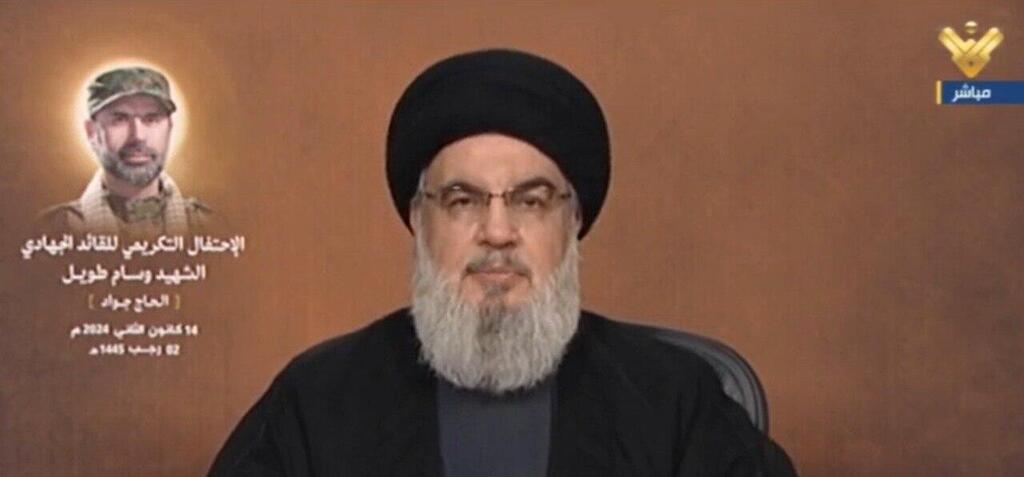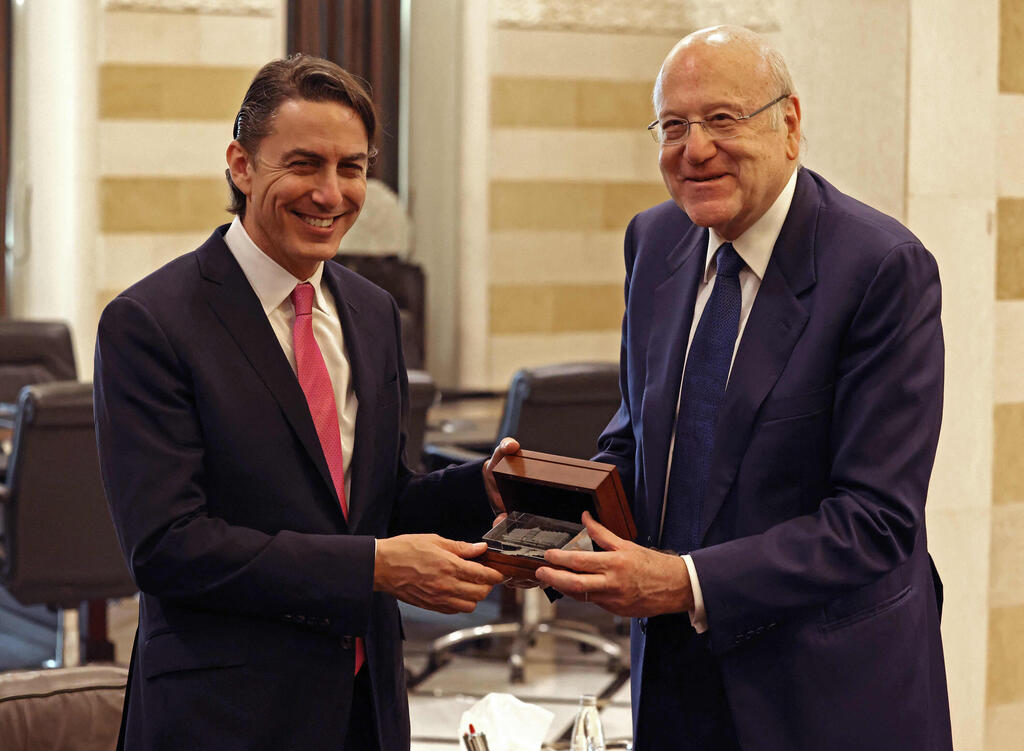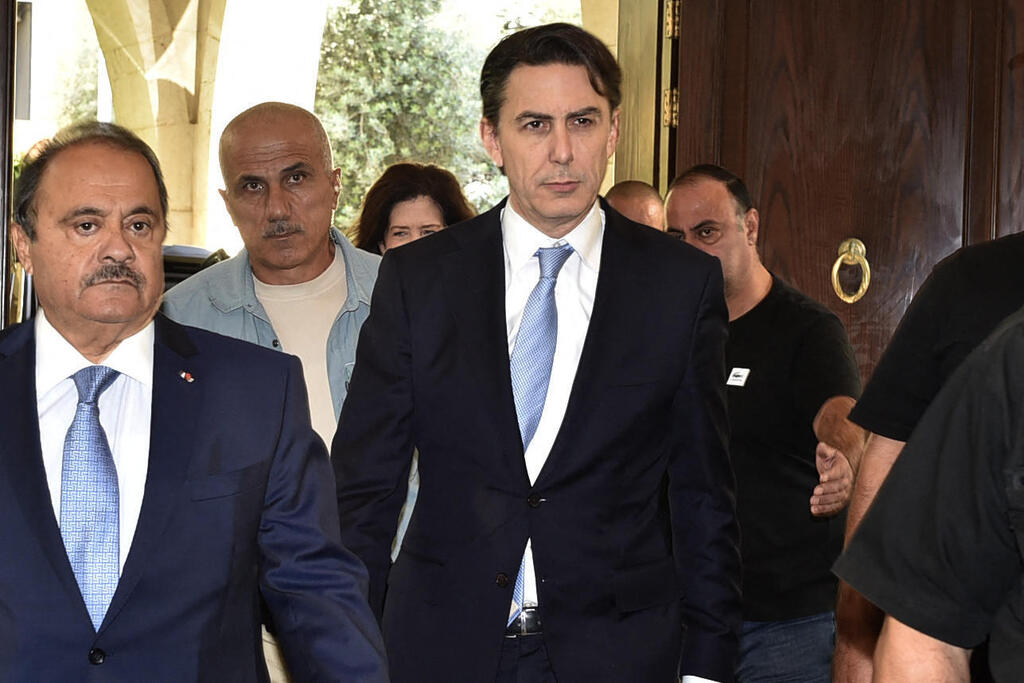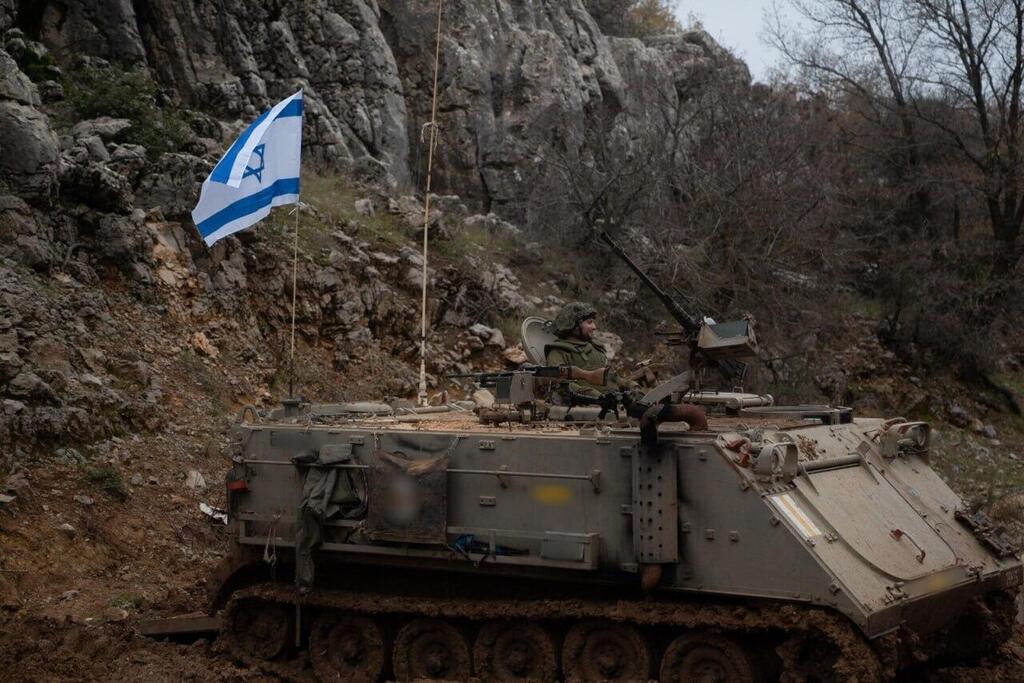Getting your Trinity Audio player ready...
In recent weeks, Lebanon has made the issue of Mount Dov a central issue in any discussion about a future agreement with Israel. Although it turns out that Amos Hochstein, U.S.President Joe Biden's special envoy to the Middle East, does not intend to deal with the issue as part of his mediation, from the recent statements of the senior officials in Lebanon it can be understood that they do not intend to give up on Mount Dov so quickly.
Read more:
The Mount Dov area is a hotbed of controversy between the Israel and Lebanon and, hence, also a major source of fighting between Israel and Hezbollah, both in the current war and years ago. On Sunday night, for example, a terrorist squad that tried to infiltrate Israeli territory from the area was eliminated. During the past few weeks, Hezbollah has been incessantly attacking IDF posts and cities adjacent to the border.
Lebanese Prime Minister Najib Mikati said last week, before Hochstein's arrival in the country, that the situation in southern Lebanon should be returned to what it was before 1967 and that Mount Dov should be returned to Lebanon. He also mentioned that the future talks with Hochstein will also include this issue.
The Lebanese foreign minister said last week in a meeting with the United Nations Under-Secretary-General for Peacekeeping Operations Jean-Pierre Lacroix that the Mount Dov issue is an essential element of the overall solution and cannot be overlooked. Even after Hochstein's visit to the country, the speaker of the Lebanese Parliament, Nabih Berri, said that there is no negotiation without Mount Dov.
On Sunday, the Saudi newspaper A-Sharq Al-Awasat reported that Lebanon is interested in "liberating" the area from Israel. However, sources told the newspaper that the US envoy is limiting his talks with Lebanese officials and is discussing Israel's withdrawal from the 13 points of dispute on the border, not from Mount Dov.
According to the publication, Hochstein explained that the Mount Dov area was not included in U.N. Resolution 1701. An expert interviewed by the newspaper said that Lebanon will have difficulty proving that Mount Dov is Lebanese. He added that before any request is made to Israel to withdraw from the area, the same should be done with Syria.
In 2000, Israel withdrew from southern Lebanon and the Blue Line between Israel and Lebanon was drawn by the United Nations. Israel did not withdraw from Mount Dov at that time because it was decided that the area around it is part of the Golan Heights, not Lebanon, and is subject to future agreements with Syria.
The Lebanese newspaper Al-Akhbar wrote last week that Hochstein said he was not authorized to discuss the Mount Dov issue. Furthermore, Syria has not officially notified the U.N of its land borders with Lebanon in this area, requiring a Lebanese-Syrian agreement before any discussion with Israel.
Lebanon's emphasis on the Mount Dov issue raises another question: Was the Lebanese precondition of a cease-fire in Gaza replaced by the condition of an Israeli withdrawal from Mount Dov? The Lebanese Al-Akhbar published on Friday that Hezbollah reiterated that "there is no room for dialogue until the end of the war in Gaza." However, in an article published on Sunday in the Saudi newspaper A-Sharq Al-Awasat different claims are made. A former member of the Lebanese parliament, Fars Said, told the newspaper that "Hezbollah and the Lebanese government want the implementation of resolution 1701 to begin with Israel's withdrawal from Mount Dov," which means that they replaced the condition of the cease-fire in Gaza with this condition.
"Hezbollah's agreement to negotiate with Israel through the United States means that Hezbollah has abandoned the discourse on fighting Israel until the 'liberation of Palestine,'" according to Said. He added that the recent assassinations in Lebanon constituted a "political and military embarrassment" for Hezbollah and forced the organization to participate in the negotiations.
4 View gallery


Hezbollah Secretary-General joins negotiations due to heavy losses from attacks against Israel
According to the former member of parliament, Hezbollah does not want war and Iran is also wary of dragging the organization into war. According to him, Tehran has cut itself off from the events of October 7 and is conducting an unofficial dialogue with the U.S., something that hurts the "axis of resistance." The article in A-Sharq al-Awasat also stated that the recent events on the ground show that Hezbollah does not want to enter the war, especially when it knows the expected devastating consequences for Lebanon, especially after the assassination of Saleh al-Aaruri in Dahieh in Beirut and the assassination of Wissam Tawil.
The disputes regarding the land border between Israel and Lebanon do not only center on Mount Dov, despite the extensive preoccupation with the issue. There are differences of opinion between Israel and Lebanon regarding a number of areas on the border. Lebanon claims ownership of 13 points on the border that it claims belong to it, one of which is point B1, which is located at Rosh Hanikra and is considered a strategically important point. In addition to these points, Lebanon also demands Israel's withdrawal from the village of Ghajar in the Golan.





